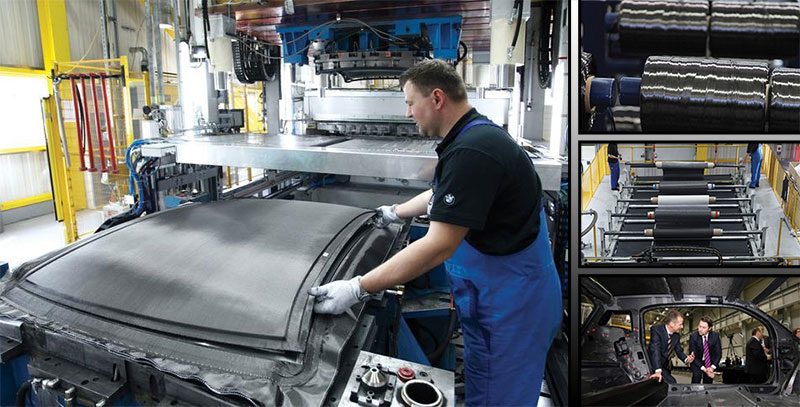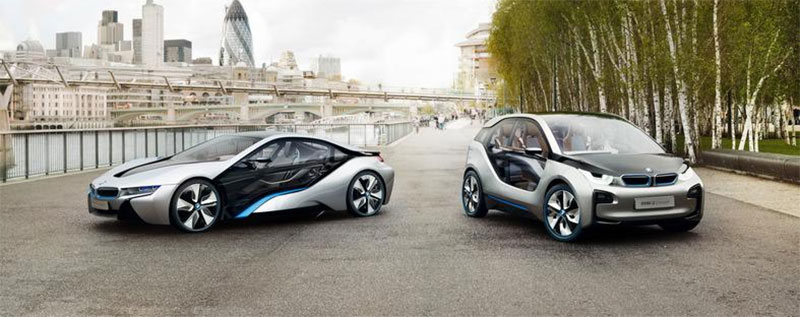Is Carbon Fiber the Future for Automobile Construction?
Many answers are pointing to yes. As we search for new ways to make our cars more and more efficient we find ourselves looking for the next best material. Throughout the years we have gone from steel, to aluminum chassis and even uni-body construction. So what’s next in line to replace these and take the automotive world into an entirely new dimension of efficient diving? With gas prices rising, automobile manufacturers are forced to change their habits of larger engines and heavier cars for a more efficient alternative. That is where carbon fiber comes into play. Carbon fiber was first developed as an aerospace material and was once far too expensive to mass produce for automobiles. As technology has developed new and easier ways to mass produce the stuff, we have seen thousands of new industries popping up that revolve around carbon fiber, just like RW Carbon. Carbon fiber can be adapted to so many applications, from automobile construction to the manufacturing of furniture or even athletic gear, which makes it the prime material to head up our future industries.
As technology develops new and easier ways to mass produce the stuff, we have seen thousands of new industries popping up that revolve around carbon fiber, just like RW Carbon.

(Carbon Fiber Manufacturing in one of BMW’s Factories)
Does More Carbon Fiber Benefit Everyone?
Because carbon fiber is such an adaptable material it can be used to satisfy every automobile owner’s needs. The “green” car owner looking for the most fuel efficient or electric car can even benefit from this new direction. Due to its’ strength, rigidity and lightweight characteristics, carbon fiber has the ability to decrease the weight in every car by hundreds of pounds. To those “green” drivers this sounds like a more efficient vehicle that now needs less fuel or power to accelerate. However, to the speed freaks this means faster 0-60 times, quicker braking and improved handling. With this said, carbon fiber is now the top contending material for every automobile manufacturer, and on top of every speed freak’s wish list.
But, what about my Naturally Aspirated Big Displacement Engine?
Do not worry as of now. The magnificent V8 engine and other equivalent large displacement engines aren’t disappearing yet, but rather transforming. As the world becomes more and more concerned with the health of our planet we are seeing big fuel guzzling V-8 engines being replaced with lower displacement forced induction vehicles. To all our American Muscle heads that are die hard fans of the naturally aspirated motors of the 90’s and the early 21st century this might be a concern. Coming from someone who drives a V8 himself I am slowing beginning to embrace this change. Those times of 10 mpg might be disappearing but a new age of faster, more agile and more efficient vehicles are on our horizon. Vehicles likes the all new BMW i8, Mclaren P1 and Porsche 918 Spyder are living proof of the new use of carbon fiber and hybrid systems in today’s vehicles. New automobile technology typically starts with the next hyper or super cars and trickles down as technology advances. Both of these new super cars feature an unprecedented amount of carbon fiber use and a new hybrid power system that features electric motors and a gas powered engine to boost power numbers while making them incredibly fuel efficient. Carbon Fiber is definitely here to stay and will hopefully continue to advance and take the automobile industry to new heights.
If you would like to read more about the revolutionary BMW i8 and its Carbon Fiber Safety Shell (Click Here)

(Porsche 918 Spyder vs. the Mclaren P1)
If you have any further questions about the future of carbon fiber in the automobile industry please email RW Carbon at info@rwcarbon.com.
Recent Posts
Post Categories
- Apparel (2)
- Audi (6)
- BMW (540)
- C190 GTC (2)
- Carbon Fiber Education (6)
- Company Updates (14)
- Events (10)
- F80 M3 (15)
- F87 M2 (5)
- F90 M5 (5)
- F95 X5M (1)
- Ferrari (2)
- Industry News (18)
- Jeep (2)
- Mercedes (199)
- Porsche (3)
- Product Announcements (1)
- Project Cars (30)
- Promotions (5)
- RW Signatures (5)
- Sliplo (1)
- Tesla (10)
- Uncat (32)
- W205 C63S (9)
RW Carbon
(714) 328-4406
Monday – Friday: 8am-4pm
Saturday & Sunday: Closed

